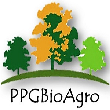Banca de QUALIFICAÇÃO: VICENTE PATARAICO JUNIOR
Uma banca de QUALIFICAÇÃO de MESTRADO foi cadastrada pelo programa.DISCENTE : VICENTE PATARAICO JUNIOR
DATA : 14/04/2021
HORA: 08:00
LOCAL: Web Conferência - Google Meet
TÍTULO:
YIELD, BIOCHEMISTRY AND ECOPHYSIOLOGY OF HYBRIDS TOMATO PLANTS GROWING DIFFERENT TYPES OF ENVIRONMENT
PALAVRAS-CHAVES:
Solanum lycopersicum (L.); Protected cultivation; environment protected; Tropical horticulture; High temperature;
PÁGINAS: 52
GRANDE ÁREA: Outra
ÁREA: Ciências Ambientais
RESUMO:
The tomato is a fruit vegetable widely grown in the world. The state of Mato Grosso has great potential for the exploitation of tomato, however due to environmental factors combined with low technology in its production, it is still incipient. An alternative to leverage this development would be the use of protected cultivation. In a protected cultivation system, one of the main factors that limits productivity is the high temperatures reached inside the environment, and the temperature is a limiting factor for tomatoes grown in this system, as the temperature exceeds 30 ° C. It is of great importance to adopt technologies that seek to reduce the thermal load in protected cultivation systems in regions with a humid tropical climate. The present study aims to determine the protected cultivation system that provides better cultivation conditions, being covered with polycarbonate, agricultural film and unprotected environment in a given field, and its reflexes on the productivity and quality of Italian tomato cultivars in high temperature conditions. . The experiment was conducted in a randomized block design in a split plot scheme, using three environments in the plot and three hybrids in the subplot. The environments were, environment protected with polycarbonate (P), environment protected with agricultural film (FA) and open field (CA), the cultivars were DS00600, Trucker and Thaíse. The experiment had repetitions of the subplots in each environment. The evaluated parameters were productive, physiological and qualitative variables. The highest yields were achieved in the P (Polycarbonate Coverage) environment, by the cultivars Thaíse, Trucker and DS0060 (92.56, 88.22 and 75.32 t ha-1), with a similar response in number of commercial fruits. The P environment provided higher values of commercial production - PC (kg plant-1) with 3.90, followed by the FA and CA environments with averages of 3.58 and 3.24 respectively. Among the cultivars evaluated, there was a significant difference for the environments. There was no differentiation for the physiological variables. It is concluded that the Thaíse and Trucker hybrids presented better productive performances in the P and FA environments, corroborating to a better qualitative and productive standard.
MEMBROS DA BANCA:
Presidente - 117161002 - SANTINO SEABRA JUNIOR
Externo ao Programa - 203735002 - MONICA BARTIRA DA SILVA
Externo à Instituição - MÁRCIO ROGGIA ZANUZO - UFMT



